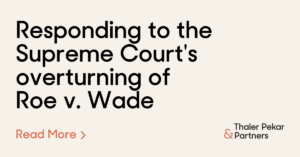4 min read
Your Listener Wants Control

Dear leaders and communicators, are you listening to your listeners? When you are asking your listeners to make decisions, they desire control.
Not the need to control others, but the need to assert autonomy over decision making.
When we scan all incoming data, information, and requests, what we want most is an ability to choose our focus of time and task.
Edward Deci and Richard Ryan’s self-determination theory argues that we have three innate psychological needs: competence, autonomy, and relatedness. David Rock’s SCARF model riffs on Deci and Ryan, expanding to include Status, Certainty, Autonomy, Relatedness, and Fairness.
Yet we do not take actions that improve our status, enable us to ascertain the future, gauge our safety among others, or perceive fair exchanges unless we feel we are in control of our decision-making. When faced with a decision, autonomy supersedes the desire for affiliation or achievement or influence. Those desires may also be decision factors, but we do not decide in their favor unless we first feel a sense of control over the ability to make the decision.
My colleague Rich Neimand, of Neimand Collaborative, contends that confidence — a belief that one is making the right choice — is as important as control when persuading people to take action or make a decision. We are unlikely to act if we do not have the confidence to shape our own destinies, on our own terms.
Think of the last decision you made, whether it was as monumental as deciding to fund your 401K, or as inconsequential as which menu items you ordered. Most likely, you felt confidence in your ability to decide.
The most effective communication is invitational. When we approach our communication as offering an invitation, we are more likely to genuinely engage with our listeners.
When our listeners engage and willingly choose to take an action, they are exercising control. It is important to note that when people resist messages that are pushed at them, they are also exercising control.
To be invitational, we must frame our communication to appeal to our listener’s emotional need for confidence and control. To persuade, we must identify the degree to which people believe they can control their life outcomes.
In North Carolina, public schools were facing competition from private schools and emerging charter schools. Rich was asked to help advocates communicate the value of public schools. First, he identified the locus of control, and then he invited parents to feel confident in their decision:
“The public schools were talking about creating a better society through fair and equal schools. But that was only one of three ultimate values that parents had. The other two were being an accomplished parent and raising a successful individual, both of which were ultimately more important to more parents. The majority based their school decision on how confident they were that their child would get personal attention to help the child become successful and the parent accomplished. Public schools could provide that confidence, but they didn’t intentionally speak to it. Charter and private schools almost exclusively focused on building parent confidence and gained market share from public schools, even though the public schools were the only education institution with a proven record of helping parents accomplish their goal of raising successful children and contributing to society through fair and equal schools.
“In short, school choice, like much of education in the United States, has very little to do with children and everything to do with the relative anxiety and confidence of parents. Making parents feel hopeful and optimistic about their chances of achieving their goals provided them with the confidence to choose a particular school. Rational metrics of student and school performance were not the real drivers of decision-making by a long shot.”
People’s sense of control influences their confidence. Confidence contributes to self-motivation and to mobilization and activism. People must believe that they can indeed change things to act to do so.
My firm trains physicians to communicate with patients and care-givers in ways that value autonomy. This invitational focus allows for patient control and confidence in medical decision-making. It is proven to result in both higher compliance and greater patient satisfaction.
We also direct medical providers in sharing invitational, rather than prescriptive stories. Empathetic stories that resonate with listeners are shown to “help patients confidently make informed decisions that fit their individual health needs.” These are stories about experiences that allow the listener to imagine themselves in a similar situation, faced with making similar decisions about treatment options.
Jay Rhoderick, an accomplished actor and improviser (and my creative partner at Thaler Pekar & Partners), explains our approach as, “letting the audience have their part in the performance. You are inviting people to sense control.”
When speaking, your paramount goal is to appeal to your listener’s profound emotional desire for autonomy. To contribute to your listener’s sense of confidence, and to invite their agency.
Thaler Pekar & Partners is internationally-recognized for its deep expertise in narrative, story, and communication. Both the BBC and the Smithsonian Institution have hailed the founder, Thaler Pekar, as one of the world’s leading experts on institutional storytelling.
For 14 years, the team at Thaler Pekar & Partners has advised visionaries on being understood and influential. Our trademarked communication processes — Heart, Head, & Hand®, Engagement Equation® and Invitational Incline® — provide leaders with the confidence to speak, listen, and be heard, and sustain them in offering effective motivation. As a result, teams are more productive, audiences are more receptive, and visibility increases.
Our award-winning work ranges from gathering 178 oral histories across four continents and six countries for Chuck Feeney’s The Atlantic Philanthropies; to finding and refining stories about integrity for Novartis senior leadership; to coaching a mainstage TED Talker; and to developing a communication and story skills academy for L’Oreál International Educators and Customer Representatives.







